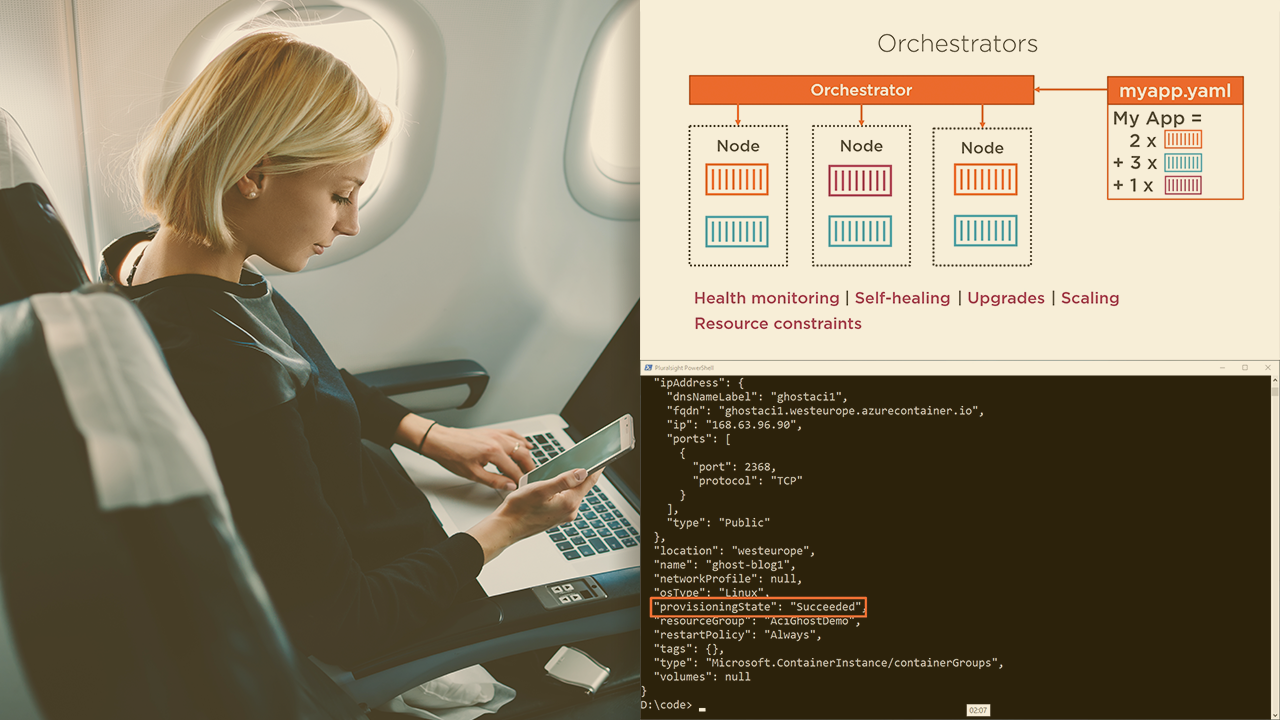- Course
Microsoft Azure Developer: Deploying and Managing Containers
Azure offers multiple services that can run containers. This course helps you get started with Docker and introduces four key Azure services that simplify deploying individual containers or entire microservice applications.

- Course
Microsoft Azure Developer: Deploying and Managing Containers
Azure offers multiple services that can run containers. This course helps you get started with Docker and introduces four key Azure services that simplify deploying individual containers or entire microservice applications.
Get started today
Access this course and other top-rated tech content with one of our business plans.
Try this course for free
Access this course and other top-rated tech content with one of our individual plans.
This course is included in the libraries shown below:
- Cloud
What you'll learn
Docker is a great way to package and run applications, and Azure is a great platform to host containers. In this course, Microsoft Azure Developer: Deploying and Managing Containers, you'll learn about the key Azure services that support containers. First, you'll learn the basics of Docker, including how to run containers locally, as well as build them from your own Dockerfiles. Next, you'll see how to push images to Azure Container Registry. Finally, you'll explore four different Azure services that can host containers, including Azure Kubernetes Service and Azure Service Fabric, learning how to get started with them and what unique benefits they offer. When you're finished with this course, you'll know several ways of deploying containers in Azure and how to choose the most appropriate one for your needs whether you are running a simple web app or an entire microservice application.

